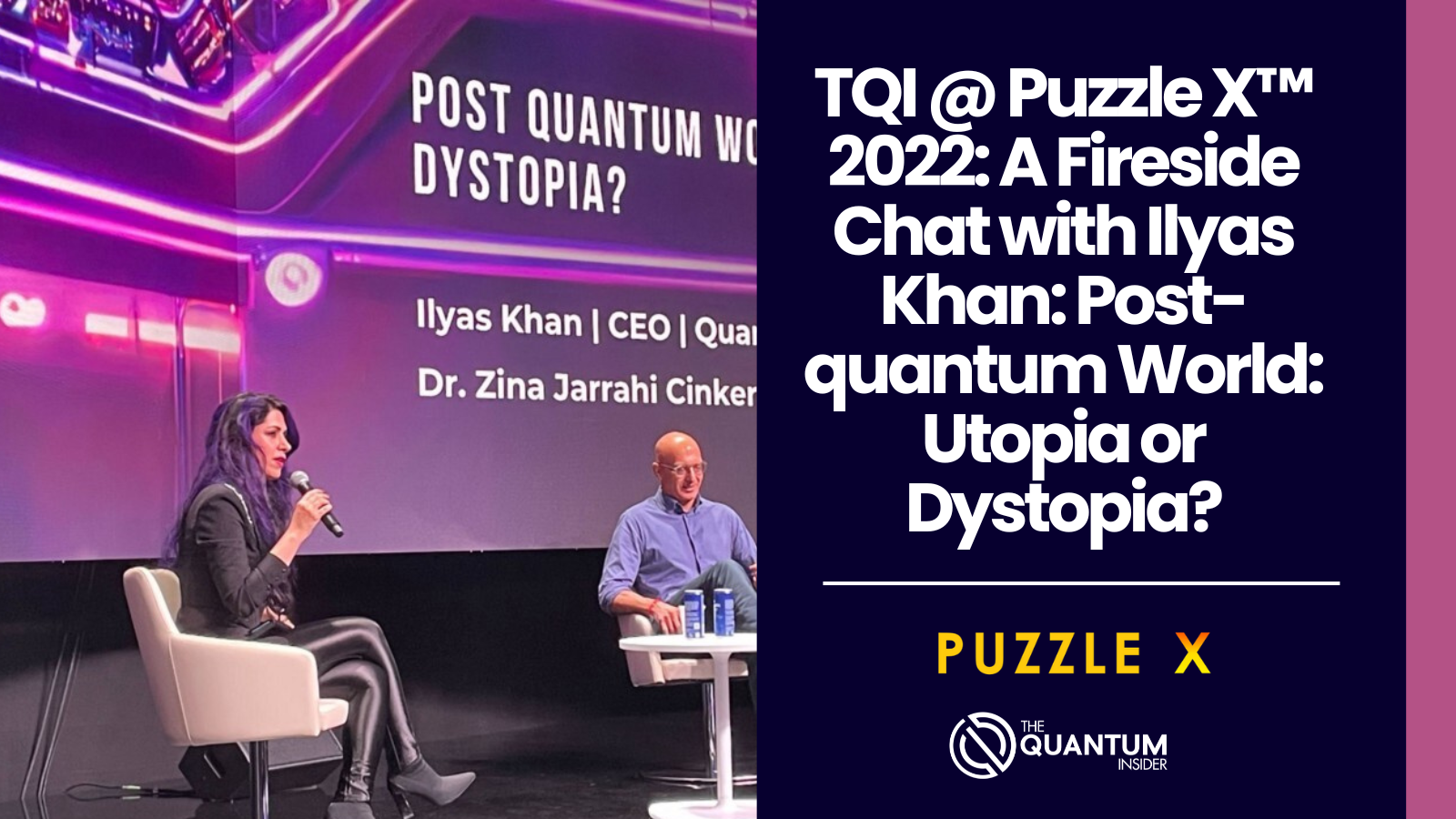Societal Good
It’s something we all dread, or at least it is for those who care about our future and the future of the generations to come — what will the quantum landscape look like in twenty years, a hundred, beyond that?
Nobody knows. It’s a conjecture, a philosophical thought experiment, but interesting nonetheless. And what better person to discuss this than with Ilyas Khan, a British technologist, businessman and the CEO of Quantinuum, a company that unites Cambridge Quantum Computing’s (QCC) best-in-class software with Honeywell Quantum Solutions’ high-performing trapped-ion hardware.
Before Khan attempted to answer the question, he made a good point by saying the reason he was here — the reason why he comes to any quantum or deep tech conference or event— is that people really need to think about technology for societal good, which, for all sense and purposes, is the way it should be.
Zina Jarrahi Cinker, host and founder of Puzzle X™, enforced that message:
“That’s such an interesting and important perspective. It’s all about impact. Anything we do is about impact,” she said.

I would agree that Khan and Jarrahi Cinker were aligned with everyone in the audience.
“We are living in a new industrial revolution,” said Khan to start off the conversation, “This is not just about a new technology, we lift the veil on the nature of reality.”
The host proceeded by asking Khan with this transformation, is this a door to a utopia or dystopia?
Born Optimist
“I’m a born optimist,” said Khan. “I grew up in Lancashire in the northwest of England. I’m a child of the 70s and 80s and I have to be optimistic, that’s me. Everything is half full. […] Utopia, every single time.” Then the inevitable caveat came: “But, utopia with our eyes open.”
Khan believes there are many risks, though these can be articulated in three points that we can identify with and — in everyone’s own way — build a path so the dystopia, which Khan thinks is always a heartbeat away, can be avoided.
1) Khans says nation-states have decided to close their doors, alluding to the restrictions, laws and regulations put in place by governments, stymying innovation and collaboration.
2) Related to the first, Khan calls attention to the dominance of the capital that is required to do this [quantum], citing “quantum is not cheap”, a reason — again directed to the point above — national programs have been put in place.
3) Allocating resources. Khan is passionate that developers in cities such as Lagos, Manila and Bangkok can participate in “developing those core algorithms that actually matter,” that this happens not just in the more developed cities and regions but in those places too.
The Quantum Kid
“There are not more than three algorithms today — you can ignore anybody who tells you otherwise because they either don’t know or they’re lying. That next breakthrough, the equivalent of Shor’s algorithm, is as likely to come from some kid who today is five years old and living somewhere that we can’t even imagine,” said Khan, before adding: “And we need to get to him or her.”
Khan then told the audience that at Quantinuum most of the company’s employees are half his age (Khan is sixty), and the thing that really excites him is that they will not tolerate what he did.
Profit over Everything Else
“In 1995 and 1996,” said Khan, “we messed up. When the internet came, we didn’t care. We allowed the pursuit of momentary profit to create these behemoths. This generation will not allow this to happen, and that’s why I’m so excited by what we’re doing now.”
Before the discussion ended, Jarrahi Cinker had one more question for Khan. A prediction:
“What does quantum 2040 look like in a world where quantum is implemented and integrated?”
“There is no computer, there’s no collection of computers, not a planet full of computers that understands what I’m saying now or what Zina and I have just discussed,” said Khan. “By 2040 it is likely that a quantum computer built on a quantum circuit gate-based system — I don’t know whether it’s going to be superconducting or trapped ions — will understand what we say, that’s scary, that has never, ever happened before.”
So, there you have it, Ilyas Khan, an individual for a quantum utopia.
If you found this article to be informative, you can explore more current quantum news here, exclusives, interviews, and podcasts.



















